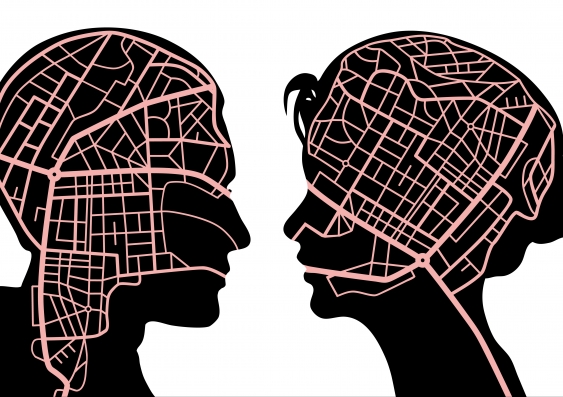A brain mapping study led by researchers from UNSW’s Centre for Healthy Brain Ageing (CHeBA) and QIMR Berghofer has found new evidence of a neural basis for the different behaviours in men and women and that the gender differences in brain networks continue through to old age.
In the study, published in journal Neuro Image, the researchers created for the first time a complex map of connections in the healthy elderly brain, known as a connectome, using advanced imaging technology and sophisticated computer models.
Lead investigator Alistair Perry, from UNSW’s Centre for Healthy Brain Ageing, and QIMR Berghofer, said the study found stronger neural networks in elderly women around verbal and language areas of the brain.
“In men there was not such a clear distinction but we found greater connections to the regions of the brain related to reward centres and behaviour regulation,” Mr Perry said.
The study also lays the groundwork for new research into Alzheimer’s disease and frontotemporal dementia.
The study found the connectome in a healthy elderly brain is organised in a very similar way to that of a young adult, but its capacity to transfer information is slightly hindered.
“The length of fibre connections is significantly shorter in the elderly brain, and the major ‘highways’ carry less information than the adult brain,” Mr Perry said.
“We believe this relates to the cognitive decline in some elderly people in areas such as memory, attention and processing complex tasks.
“Now we know how healthy ageing looks we can identify the changes caused by neurodegenerative disease, and how we might be able to intervene.”
Mr Perry said the next step would be to use the same methods to map the connectome of those with mild cognitive impairment.
“One in five people with mild cognitive impairment go on to develop Alzheimer’s and this will identify the connections that break down at the early phase of the disease,” he said.
“We would then be able to predict with greater accuracy if someone is at increased risk of Alzheimer’s, and could develop new approaches to treatments.”
"This new knowledge may help us determine whether these gender differences still arise in those with Alzheimer's and explain the disproportionate rate of mild cognitive impairment and Alzheimer's in females."
QIMR Berghofer researchers collaborated with CHeBA to examine scans and data from UNSW's Sydney Memory and Ageing Study (MAS).
Beginning in 2005, the study has longitudinally examined the rate of cognitive decline in older individuals whose health is “better than average”. It is one of the largest of its kind in Australia.


